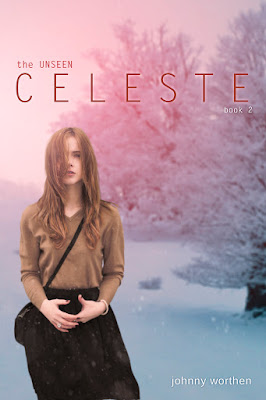 Continuing with my responses to an MFAs student's questions to me about Young Adult Literature, I present to you question number three. Check out the links below for one and two.
Continuing with my responses to an MFAs student's questions to me about Young Adult Literature, I present to you question number three. Check out the links below for one and two.The Questions:
1. What does the term "young adult literature" mean to you as an author?
2. What do you believe makes a novel young adult?
3. What made you want to write a young adult novel (or market Eleanor, Celeste, and David as such)?
4. Do you believe young adult novels have literary value? How so or why not?
5. What do you believe the future of young adult literature entails?
3. What made you want to write a young adult novel (or market Eleanor, Celeste, and David as such)?
I wrote my UNSEEN series for the same reason I write any book; I was interested in certain concepts and needed a way to explore them. Driven by ideas and themes of trust, change, forgiveness and the nature of predator versus prey, human versus animal, I lighted upon a story that could be placed in a YA setting. I won’t lie, part of my decision to work in the young adult genre was based in my knowledge that young adult books are popular and sell and are read by adults as well.
 It is important to remember that the life of a young adult, a teenager, is very much different from any other time in one's life. What an adult would call a mid-life crisis, a teenager calls a Tuesday. It is a time of unparalleled change and challenges. It is the time of leaving the nest and for self-discovery unlike any time before and after. This rush of change and definition is dramatic and important and fertile ground for story and evolution. It’s a good place to explore character and meaning, thus a perfect setting for Eleanor, even though she’s old and young.
It is important to remember that the life of a young adult, a teenager, is very much different from any other time in one's life. What an adult would call a mid-life crisis, a teenager calls a Tuesday. It is a time of unparalleled change and challenges. It is the time of leaving the nest and for self-discovery unlike any time before and after. This rush of change and definition is dramatic and important and fertile ground for story and evolution. It’s a good place to explore character and meaning, thus a perfect setting for Eleanor, even though she’s old and young.I wrote The Unseen in a YA setting, but I didn’t dumb it down. I kept the very adult and important themes and only lowered the violence and sex ratios, which wasn’t hard for a frightened protagonist. The age of Eleanor is vexing; I got to cheat there, but it’s also thematic. I had faith in my readers that they would respond to my ideas and my themes and I have been proven right time and time again. Young adult readers, because they are readers, are pretty smart.








